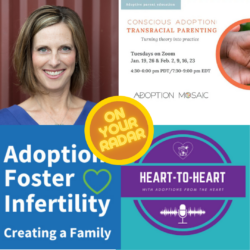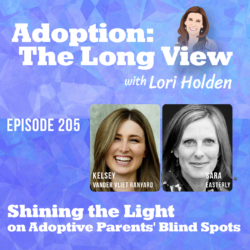
on your radar
On Your Radar: 4 Essential Adoption Resources For January
A book review, a course in adoptive parenting, two parenting podcasts. In case these adoption resources weren’t on your radar, they are now.


A book review, a course in adoptive parenting, two parenting podcasts. In case these adoption resources weren’t on your radar, they are now.

Sara Easterly and Kelsey Vander Vliet Ranyard are busting myths about adoption by raising adoptee and birth parent voices. Listen to them!
Sara Easterly, an adoptee voice, explains coming out of the adoption fog and implications for adoptive parents who love their child.